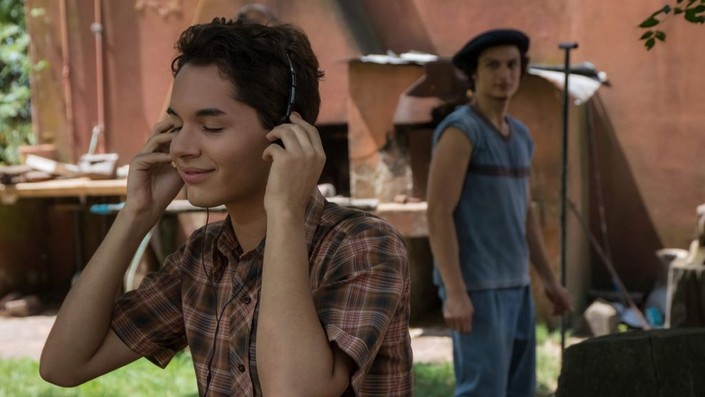Men of Hard Skin: An Unflinching Look at Faith, Desire, and Betrayal in Rural Argentina
Released in 2019, Men of Hard Skin (Hombres de piel dura) is an Argentine drama directed by José Celestino Campusano. Known for his raw and socially conscious storytelling, Campusano often centers his films on marginalized voices and taboo subjects, and this film is no exception. With its provocative subject matter and rural setting, Men of Hard Skin explores the intersections of sexuality, religion, and power in a society where tradition and repression weigh heavily on personal freedom.
The story follows Ariel (played by Wall Javier), a young man living in a small village in Argentina. Ariel is deeply religious and has been raised in a community dominated by the Catholic Church. However, his faith is shattered when he becomes entangled in a secret sexual relationship with a local priest. What initially begins as a trusted bond turns into a form of exploitation, leaving Ariel scarred and struggling with feelings of guilt, shame, and confusion. The betrayal from a figure of spiritual authority forces him to question not only his own identity but also the structures of power that shape his world.

As Ariel searches for love and acceptance, he attempts to rebuild his life outside the confines of the church. His journey takes him into new relationships, where he seeks genuine intimacy and emotional connection. Yet, the stigma of homosexuality in his conservative community, coupled with the trauma of his past, complicates his attempts at healing. The film portrays his struggles with both tenderness and unflinching honesty, refusing to shy away from the harsh realities faced by queer individuals in rural and religiously dominated environments.
Campusano’s direction is characterized by a mix of realism and confrontation. The film employs non-professional actors alongside professionals, lending authenticity to its portrayal of rural Argentine life. The cinematography avoids gloss and polish, opting instead for a raw, documentary-like aesthetic that underscores the harshness of Ariel’s circumstances. This approach makes the narrative feel immediate and visceral, placing the audience uncomfortably close to the injustices and vulnerabilities depicted on screen.
One of the film’s central themes is the abuse of power within religious institutions. By depicting the priest’s exploitation of Ariel, Men of Hard Skin critiques the way authority can be weaponized to manipulate and control, especially within communities where the church holds enormous influence. At the same time, the film refuses to reduce its protagonist to victimhood alone. Ariel’s resilience, his capacity for love, and his pursuit of self-acceptance highlight the strength required to overcome trauma and reclaim agency.

Critics responded to Men of Hard Skin with recognition of its courage in addressing controversial issues. Some praised its unvarnished portrayal of rural queerness and its willingness to confront religious hypocrisy, while others noted its discomforting tone and challenging subject matter. Regardless of opinion, the film undeniably sparked conversation about faith, sexuality, and institutional abuse—topics often silenced in conservative settings.
In conclusion, Men of Hard Skin is a powerful and unsettling work that blends personal narrative with social critique. By telling Ariel’s story, Campusano sheds light on the hidden struggles of many queer individuals navigating oppressive environments, while also questioning the moral authority of religious institutions. With its raw style and emotional depth, the film stands as an important contribution to both Latin American cinema and the broader landscape of LGBTQ+ storytelling.


